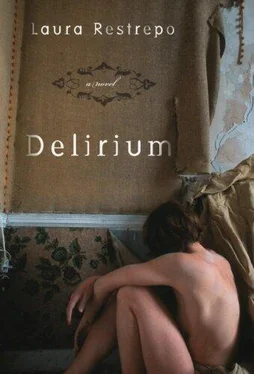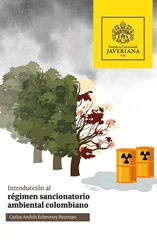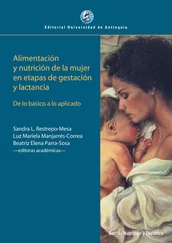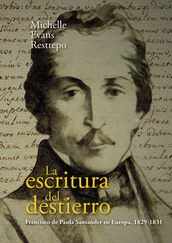But today Father isn’t double hat and after dinner they sit together in the rocking chairs in the gallery that overlooks the river, or rather that overlooks the hollow where the Sweet River flows, since on this patriotic night of July 20 the river is no more than a darkness that slips whispering along under a quiet sky lit up every once in a while by bursts of fireworks from the distant celebration. There, where the rockets are thundering, her father says, that’s where young Farax and my lovely Blanca are, maybe holding hands as their eyes fill with artificial stars, and since Eugenia is scrutinizing him, trying to decide whether a new bout of delirium is brewing in him, her father soothes her by clumsily and heavily stroking her black hair. Don’t fret, daughter, he tells her, the problem is that neither of them has any literary gift, neither of them has an understanding of the tragic. One must be strong, like your father, not to want to resolve the conflict in one’s own favor; one must be generous, my child, generosity is what’s required here. Eugenia, who is very pale, her skin almost transparent, fails to grasp the meaning of her father’s speech from where she sits, hunched in her rocking chair, but that doesn’t alarm her, since she’s used to not understanding most things he says.
On this peaceful night the cicadas and the crickets are making a racket, perhaps too much of a racket; Eugenia is afraid that her father’s eardrums, already overwhelmed by the constant buzz of tinnitus, will be assaulted, and as if her father has guessed what she’s thinking, he speaks to her of the eternal murmur bottled up in his ears. Your mother says it’s tinnitus, but she’s wrong, he says, it’s an extraterrestrial noise that doesn’t seem to come from a fixed point in space but from every direction at the same time. Father, the girl tries to explain to him, it’s just the singing of the cicadas. These women, says Nicholas Portulinus condescendingly, shaking his head from side to side, cicadas and tinnitus are what they call the age-old echo of the creation of the universe. And then he rocks until he dozes off, big, soft, and ugly in his green silk robe printed with a tangle of black branches. Ugly but peaceful, thinks Eugenia, and her thought is borne out by the litany of German rivers that she hears him mutter. The Lahn, the Lippe, the Main, the Moselle, the Neckar, and the Neisse, recites her father, talking in his sleep now. For a moment he seems to wake up and he says to his daughter, In Germany I have a very beautiful sister called Ilse, did you know? Yes, Father, Eugenia replies, but her father has already returned to his alphabetical listing, the Oder, the Rhine, and the Ruhr. Mother was right, thinks Eugenia as she too surrenders to sleep, Father isn’t queer today.
That’s why the shock is so great when, a few hours later, she hears the clamor rising from the blackness of the river, the shouts of the steward Nicasio and his wife, Hilda, the long We foooooound him echoing in the background, beneath the racket of the cicadas, beyond the crackling of the fireworks that is already dying away, We foooooound him, and Eugenia realizes that her father isn’t in his rocking chair anymore, that all that’s left of him is his slippers and silk robe. She runs to look for him all over the big house, first in his bedroom, but the still-made bed makes it plain that he hasn’t been there, then in the bathroom, but the towels, hanging in place, confirm that he hasn’t touched them, then the billiards room, the immense, empty dining room, the kitchen with orange peels still piled on the table and the lingering smell of orange blossoms, and the silent piano parlor where Eugenia is startled when she runs straight into the steward Nicasio who appears out of nowhere like a ghost, We found Professor Portulinus in the river, the people from Virgen de la Merced found him and came to tell us, he was down there, by Virgen de la Merced, about a mile and a half from here, they found him naked and lifeless in a little rocky cove and they’re bringing his body now, the river carried it away and left it washed up in a backwater.
Between cock’s crow and midnight Eugenia seems to remember a slow ceremony by torchlight on the riverbank, but the substance of that memory fades under the crushing weight of guilt, Mea culpa, mea culpa, mea maxima culpa, a voice shouts inside Eugenia, it’s my fault that we’re burying Father bloated and green and in secret, my fault that Father swallowed the water of all those rivers in a single gulp. I fell asleep and it’s my fault that my father has drowned, I killed him in dreams and the ringing in his ears will echo inside of me forever, tormenting me every day of my life and reminding me of his departure. No cross, the dazed voice of her mother, Blanca, may have said, No cross, just a stone, another stone among the many that tumble in Eugenia’s wiped-clean memory. No cross, and there was no cross, nothing to mark the burial spot.
It’s only days later that Eugenia’s memory recovers its sharpness, when she finds herself in the middle of a family scene so static that it resembles a photograph. Sitting around the dining-room table are her sister, Sofi, Farax, her mother, and she herself, Eugenia, listening as her mother announces in a cordial, reassuring voice, the voice of someone who hopes that life will go on despite everything, Girls, your father has returned to Germany, and we don’t know how long he’ll be gone. That’s what Blanca, the mother, tells them, firmly and categorically, offering no option for appeal. Father went to Germany without saying goodbye? asks Eugenia, who doesn’t know what to do now with her dream of burial and torches on the riverbank, doesn’t know what to do with the catalog of German rivers that her father murmured that night like a funeral prayer, If Father is in Germany then what happened to that night when he let himself be tempted by the call of the river, and who dreamed the dream that Father went down to the river because I wasn’t watching, that I wasn’t able to stop him, that I was the guilty one because I fell asleep; Father went back to Germany but he left his terrible suffering here, his tribulations, his muddled head; if Father went back to Germany then maybe it isn’t her fault, Eugenia’s fault, if he’s happy there in his own land, then maybe Father has forgiven her for her horrendous carelessness, if Father is far away and safe, the throng of Eugenia’s guilty feelings will perhaps be quieted, reduced, extinguished, and she can rest. Sometimes Eugenia feels that she hasn’t slept since that night of fireworks when she did sleep and shouldn’t have. Yes, says the girl Eugenia at the dining-room table in Sasaima, Yes, yes, yes, she says, and she repeats, Father went to Germany without telling us and who knows when he’ll be back, if ever.
And Farax? What happened to Farax, who disappeared almost before he completely appeared, the Abelito Caballero who shimmers in a fleeting dream that vanishes upon waking? After I’d finished reading the diaries and letters I found in the wardrobe, I didn’t have a clear answer; past a certain point Farax and Abelito are wiped out as if they’d been written in erasable ink. I ask Aunt Sofi what happened to Farax, You tell me, Sofi, if you don’t know then no one knows because Grandmother Blanca never mentions him again in her memoirs, she simply ignores him as if he never existed. I’d say that Farax must have stayed with us at the big house in Sasaima for three or four months after my father returned to Germany, answers Aunt Sofi, some three or four months, until one morning he was gone, taking his alpaca jacket, his old knapsack, and his lead soldiers, and heading off in the direction he’d come from, along the road to Anapoima. Maybe he didn’t think there was any reason for him to stay since there was no one to teach him piano anymore, or maybe he refused to accept the too-weighty inheritance that my father had left him, maybe he never loved my mother, or maybe he loved her too much, maybe he glimpsed expectations that unsettled him in my eyes or Eugenia’s, who knows what it may have been. All I can say is that Farax was left as far behind as the days of our adolescence, and that Abelito Caballero disappeared one fine day just as my father disappeared, except that he left by the road, not the river; all I know is that we never heard a thing about either of the two, or rather, three, of them again, because my mother never offered any explanation or once mentioned their names.
Читать дальше












